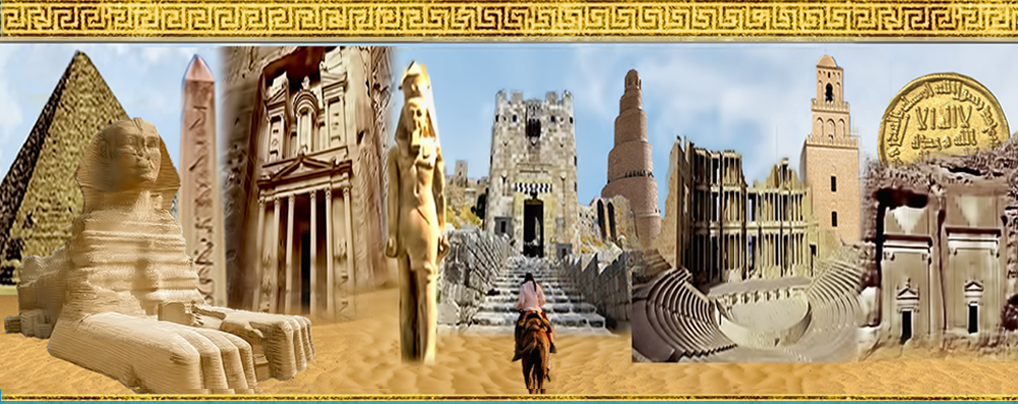Journal of the General Union of Arab Archaeologists

Abstract
(En) The concept of royal protection in ancient Egypt was not only of great significance, but it was a variable, in accordance with the events of the times. The royal guards have an essential role throughout the Egyptian times in the service of the king or in securing them during their daily life work likewise in war but unfortunately, we don't know that much about ancient Egyptian guards. But with a few bits and pieces of information in historical records, like scenes on tomb walls and titles, we can still get an idea of ancient Egyptian guards and their duties. In spite of the large number of titles known from the Old Kingdom, none of these has been made an interpretation of or deciphered to signify 'guard', in the feeling of a person whose obligation was to give security to a man or a place. However it is unfathomable that no such people existed so as to secure the king, the royal family, the top administrators, the palaces, the rich temples, and so forth. While the presence of 'royal guards' would have been important in all periods, it should have been particularly so during the Old Kingdom, when the country did not have a standing armed force or police power to keep up open request. Amid times of inconvenience or potential inconvenience, for example, a change of dynasty or an argument about progression, for instance, the presence and loyalty of the guards would no doubt have been essential.It may assume that the mission of the 'royal guard' in ancient Egypt does not go beyond the idea of 'protection' and that it belongs only to the military side, but by studying and analyzing the functions of the holders of the title of ḫnty-š and šmsw, make sure that 'protection' is a function with broad meaning, property protection was not limited only to the person of the King only, but also military and religious and civil institutions. Ḫnty-š had responsibilities related to the Egyptian frontiers. They executed the king's orders and protected funerary property. They also attached to royal mortuary temples, where they performed services for the deceased king. Their responsibility as in guarding, making the king's way, and in attending. They acted as escorts to the king in victory celebrations, military reviews and hunting events. The man who holds the title Šmsw could perform different tasks .They likewise associated with the working of the two most imperative organizations: the treasury and the granary. Their exercises in the Nubian fortresses involved administrative tasks too. They participated in the mining and paramilitary expeditions, the reward ceremony and in accompanying the royal procession in Tell El Amarna scenes. The šmsw show, through the texts of Ramesses II, a significant military strategic role of the royal bodyguard and it was one of their most critical roles. The royal protection including: the protection of the Egyptian borders, funerary temples and participation in the celebrations of victory, military ceremonies, mining campaigns and hunting. In addition the implementation of royal orders, including sending correspondence to the provinces or persons and many other public works in the sites and fortresses.
(Ar)
إن مفهوم الحماية الملکية في مصر القديمة لم يکن ذو أهمية کبيرة فحسب، بل کان متغيراً وفقاً لأحداث العصر. ولم تقتصر مهمة "الحرس الملکي" فى مصر القديمة على الحماية المنوطة بالجانب العسکرى فقط، بل إنه بدراسة وتحليل وظائف کل من حاملى لقب Ḫnty-š وšmsw تأکد أن "الحماية" هى وظيفة ذات مدلول واسع وأن الحماية الملکية لم تکن قاصرة فقط على شخص الملک فقط بل على مؤسساته العسکرية والدينية والمدنية أيضا.
لقد شغل حاملى لقب Ḫnty-š العديد من الوظائف الخاصة بالحماية الملکية منها: حماية الحدود المصرية والمعابد الجنائزية والمشارکة بالحضور فى الاحتفالات بالنصر والمراسم العسکرية والصيد وتنفيذ الاوامر الملکية ومنها ارسال المراسلات للمقاطعات أو الأشخاص.
ومن جانب آخر لعب حاملى لقب šmsw دوراً استراتيجياً عسکرياً هاماً کقوات "الحرس الملکى الخاص" من خلال معارک الملک " رمسيس الثانى" ويعد ذلک أحد أهم أدوارهم. وارتبط العديد من الوظائف الأدارية لحاملى اللقب بمؤسستين رئيسيتين فى مصر القديمة وهما: "الخزانة" و"صوامع الغلال"، بالأضافة إلى دورهم فى المشارکة فى حملات التعدين وأمدادات الجيش والعديد من الأعمال العامة الأخرى فى المواقع والحصون
Recommended Citation
Shehab, Naglaa Fathy
(2019)
"LIGHTS ON THE ROYAL GUARD THROUGH THE SIGNIFICANCE OF TWO TITLES ḪNTY-Š AND ŠMSW,"
Journal of the General Union of Arab Archaeologists: Vol. 4:
Iss.
2, Article 3.
Available at:
https://digitalcommons.aaru.edu.jo/jguaa/vol4/iss2/3

